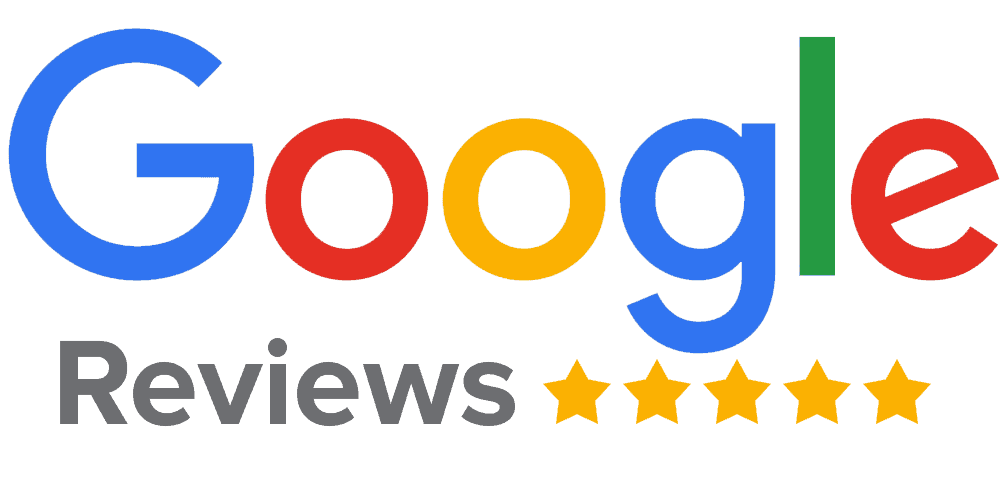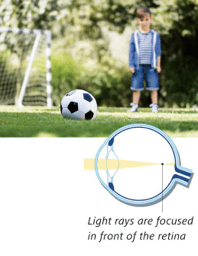Menu
Short-sightedness, or myopia, is a refractive error of the eye that is easily corrected. It is one of the most common reasons for spectacles in the UK & worldwide. Book a consultation today & discover your treatment options.


If your spectacle prescription begins with a minus number e.g. -1.50 you are myopic.
Myopia results when the length of the eyeball is longer than average or the curvature of the cornea is steeper than average resulting in the image being focussed in front of the retina. The image then becomes progressively defocussed toward the retina as the degree of myopia increases. Myopia usually presents during early life between 7 and 13 years of age with children struggling to see screens at distance. The age of onset of myopia has a trend toward younger age but can continue to develop into the 20’s. The prevalence of myopia is increasing across the globe and it is now estimated that around a quarter of adults in the UK are myopic and around 22% of the world’s population with the number continuing to rise. Myopia is associated with increased proximity of visual tasks but evidence suggests that spending time outdoors in childhood may be protective. In regions of the world where people spend a great deal of time reading and using devices at proximity e.g. Asia, the rates of myopia are very high. It is estimated that myopia will affect just over 50% of the world’s population by 2050.


Myopia is normally associated with the visual challenge of seeing well at distance but there are a number of other eye conditions that are associated with myopia. These include cataract, glaucoma, macular disease, retinal tears or breaks and retinal detachment.
Glasses and contact lenses provide the mainstay of myopia correction and are particularly useful in early life when myopia is still developing. Contact lenses provide much more visual freedom but care has to be taken to avoid the risk of infection particularly around water.
This is a technique where rigid contact lenses are worn during sleep overnight to press on the cornea and flatten in reducing myopia. The contact lenses are then removed during the day. Orthokeratology is increasingly used in children as part of a myopia prevention strategy, again extra care must be taken to avoid infections and follow instructions carefully as overnight wear of contact lenses is associated with risks.
LASIK, ReLEx SMILE® and ASA are all methods employed to correct myopia accurately and safely. LASIK is the most widely performed procedure with an estimated 40,000,000 procedures performed to date whilst ReLEx SMILE® is the fastest growing refractive procedure, think ‘Keyhole LASIK’. ASA or LASEK is similar to PRK and was the first excimer procedure to be performed to correct vision, visual outcomes are the same as the others but surface treatment have a slightly slower and less comfortable recovery.
The ICL procedure employs a thin, biocompatible Collamer® lens to sit behind the iris (so that it is not visible), in front of the natural crystalline lens (so that accommodation is preserved) and can correct myopic errors from -0.50D to -18.00D but is typically reserved for higher corrections around -9.00D upwards. It is an effective alternative if the cornea is unable to support laser vision correction.
Precise measurements are made of the eye when cataract or lens replacement surgery is planned. Correction of myopia and astigmatism will be factored into the calculation of intra-ocular lens power, whichever type of lens is selected. In some cases, people wish to remain myopic after surgery e.g. avid readers, so your medical consultation will include a thorough assessment to determine your visual aims.
Genes and the environment a play a role in the development of myopia but the genetic component is considered to be small. Children of myopic parents do have a higher chance of developing myopia.
No, but myopia can be corrected using correcting lenses or by surgery. Some studies have shown that Ortho K can slow the progression of myopia in children. Spending time outdoors, in particular more than 2 hours per day has been shown to be beneficial although the mechanism of how this works is still being investigated.
Environmental factors are thought to play a role in myopia development particularly intensive near work in downward gaze. There is wide variation in individual differences of behaviour and susceptibility to myopia so a variety of factors play a role.
No, fully correcting myopia with spectacles or contact lenses is recommended to optimise vision and is not associated with worsening of myopia. Under-correction of myopia in children has been shown to increase progression and is not recommended.
Nuffield Health Wessex Hospital
Winchester Road, Chandlers Ford
Eastleigh, Hampshire
SO53 2DW
© Anderson Eye Care 2024. All Rights Reserved. Made by Digital Roo.
Enter your details below to get instant access to your free laser eye surgery infopack.